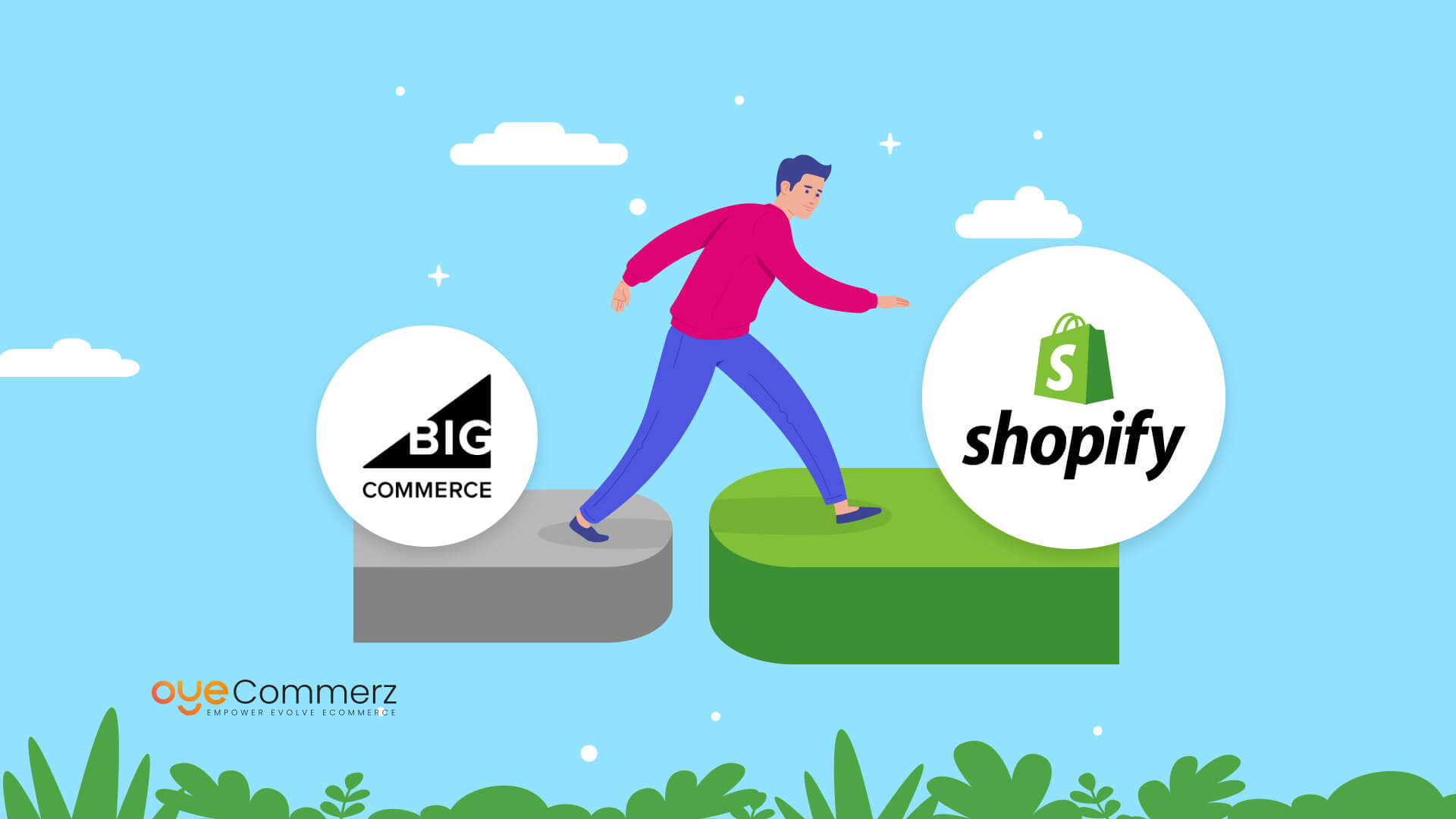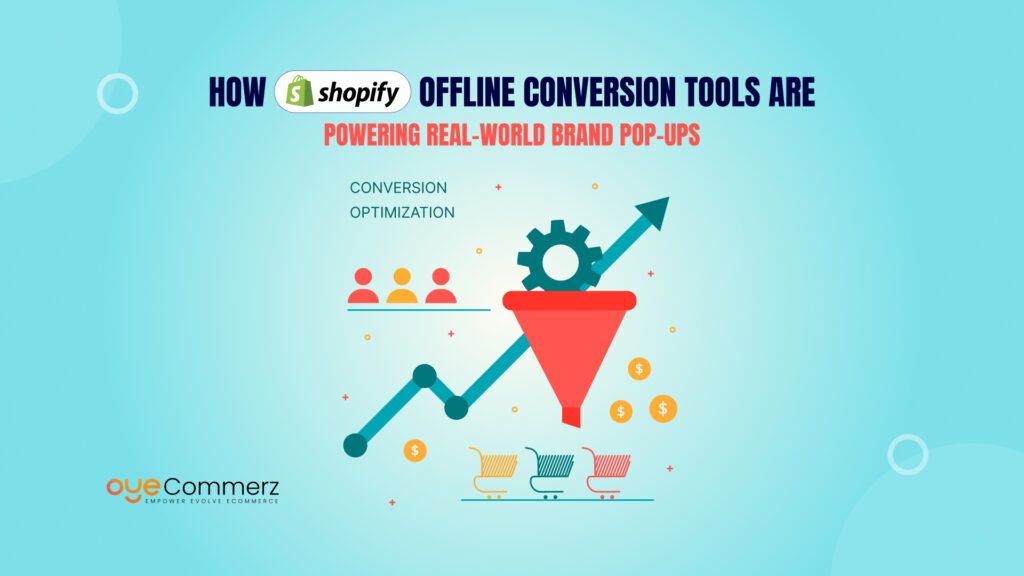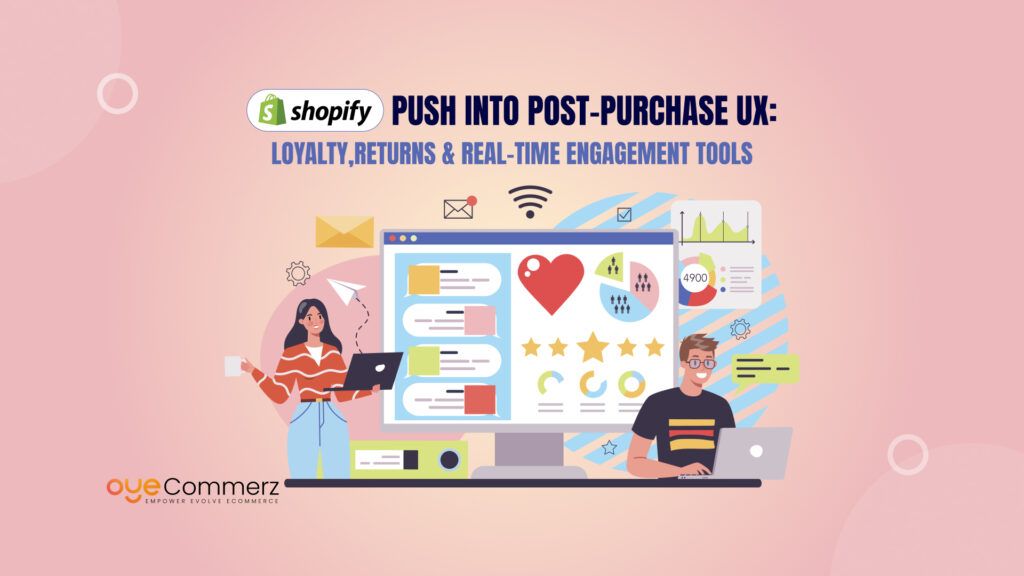Are you feeling stuck with BigCommerce and wondering if it’s time to make a switch? If your current platform isn’t giving you the flexibility, ease of use, or features you need, it might be time to consider Shopify. In this blog, we’ll walk you through the top 10 reasons why making the move to Shopify can be a game-changer for your online business. Ready to discover how you can unlock more growth, better customer experiences, and seamless management? Let’s dive in!
Table of Contents
ToggleMarket Share & Statistics - BigCommerce Vs Shopify
When examining eCommerce platform statistics in the United States, Shopify emerges as a dominant player with a market share of 25%. This translates to more than 4.5 million online stores utilizing Shopify’s platform. In contrast, BigCommerce holds a significantly smaller portion of the market, representing about 0.3% of e-commerce websites, which accounts for roughly 51 thousand online stores. According to data from BuiltWith, BigCommerce has seen a net loss of approximately 7,000 customers to Shopify, even as it has gained around 2,000 new customers.
What is Migration and Why is it Necessary?
As used in the context of e-commerce, migration means moving all your data, your products, your customers, your orders, and any other information that is pertinent to your online store from one e-commerce solution to another. This can be a very drawn-out process whereby considerable strategic planning and coordination must be done so as not to interrupt the smooth flow of the business.
Migration is needed for several reasons:
Scalability
Last but not least the ability to scale the business is also affected when your current platform cannot handle large volumes of traffic as well as sales.
Customization
Perhaps, more options are required to provide the vibrant imprint of the brand to the store.
Functionality
There could be other prominent requisites and connectivity that the existing platform of your business cannot meet.
User Experience
Improve the shopping experience with your customers to create more satisfaction levels and build up their loyalty.
It assists in determining which platform requires to be migrated keeping in mind the requirements of your business and which can be more beneficial from a long-term point of view.
Top 10 Reasons You Should Migrate from BigCommerce to Shopify
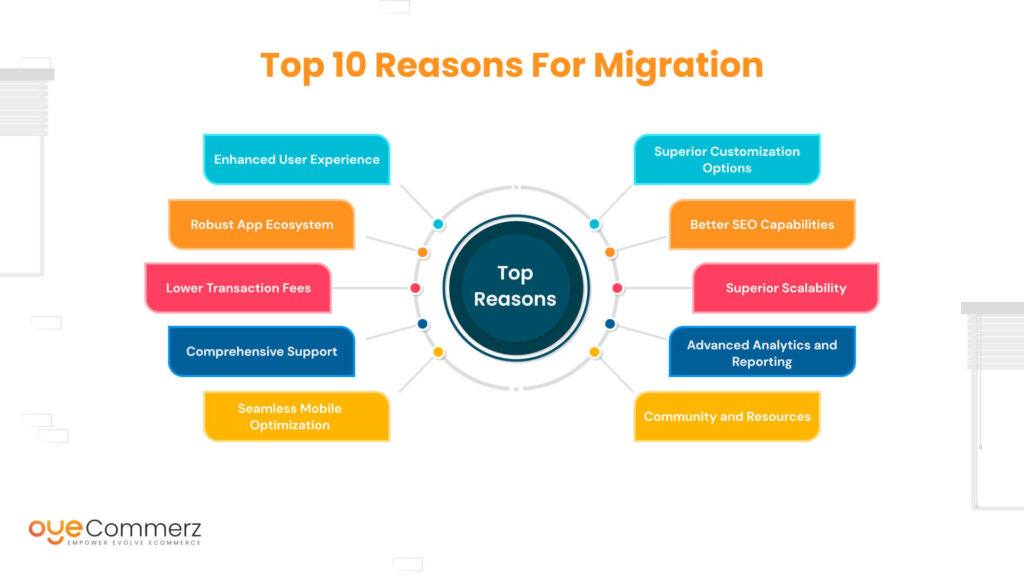
1. Enhanced User Experience
It is for this reason that Shopify has a very good reputation when it comes to the ease of use of its platform. It enhances the working process of your Internet shop and reduces the amount of work that you and your team have to do daily. Whether the user wants to add a new product, make an order, or redesign the website layout, the features of Shopify minimize time and ensure that errors will not occur easily.
2. Superior Customization Options
Generally, BigCommerce has different levels of customization but they are more limited when compared to what Shopify offers. Shopify’s themes library is vast and you can tweak any element of your electronic store to embody your brand image. Further, using Shopify’s Liquid language, more customization is facilitated which can make the user shopping experience rather personal and unique.
3. Robust App Ecosystem
Shopify has one of the most extensive app stores featuring over 6,000 apps for businesses to use. These apps can add everything to your store, from super-powered SEO or email marketing to inventory or customer service management. This indeed creates a vast array of apps through which users can be able to customize their store’s features by their business, as opposed to the BigCommerce platform, which has a limited number of apps.
4. Better SEO Capabilities
SEO is also important when it comes to bringing traffic to your website specifically your online store. Many basic SEO functions and several SEO tools are integrated into the platform and ensure your store’s proper promotion in search engines. Some of these factors include the incorporation of the title tags, and meta descriptions together with URL structures, that once you set up your store through Shopify, it ranks better in comparison to BigCommerce.
5. Lower Transaction Fees
Some of the challenges users encounter with BigCommerce include higher transaction charges, which are prohibitive with small business margins. Shopify has reasonable transaction charges also they do have plans that do not charge these rates provided by Shopify payments. This means that depending on the intensity of competition within the industry, one may enjoy a much lower overhead cost and thereby healthy profits.
6. Superior Scalability
It is very vital to note that everyone who undertakes business operations is always planning for expansion in the future. According to its architecture, Shopify is capable of supporting large amounts of traffic and sales to the business. Shopify is filled with all the features which are necessary to support your business irrespective of whether it is a small boutique or a large enterprise.
7. Comprehensive Support
Another thing that differentiates Shopify is the rich and efficient customer service offered to users with paid subscriptions. To ensure that customers aren’t just pleased but are satisfied throughout the day, there is a support team that is available to provide help through phone, email, or live chat at any given time of the day. Such a level of support makes it possible for you to fix anything that goes wrong with speed, thus maintaining the operational efficiency of your store.
8. Advanced Analytics and Reporting
Store knowledge plays a significant role in the formulation of business strategies based on your store’s success. Another great feature that is available in Shopify is it is equipped with an excellent analytical and reporting system that details your sales performance, your customers, and your store. With these insights, it is easy to diagnose trends in the market and in marketing that you can use to influence the next strategy you take to market to increase business.
9. Seamless Mobile Optimization
Since people are shopping more with their mobile devices, a store that can adapt to these devices is always a good idea. Shopify’s themes are completely mobile and tablet-friendly, which gives them a great look and feel to the page. This guarantees your store looks good on smartphones and tablets so you get more checkouts from mobile devices.
10.Community and Resources
Shopify has a highly engaged and very large community of customers, developers, and enthusiasts. This community may be rather helpful when it comes to asking for a piece of advice and knowing what common issues with the given type of business entail as well as when it comes to figuring out the best practices to follow. Moreover, to ensure maximum utilization of the platform, the Shopify Academy as well as documented guides and tutorials are available on Shopify’s official site.
Points to Remember While Migrating from BigCommerce to Shopify
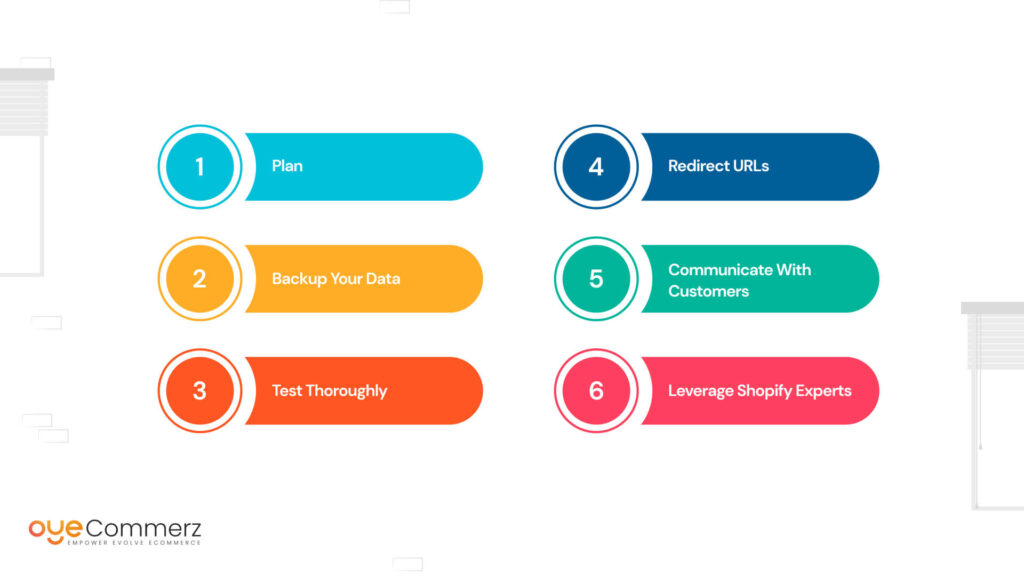
- Plan: Explain your migration plan and time frames, and include any checkpoints that will be used.
- Backup Your Data: Before proceeding with the migration it is relevant to make copies of all data sets.
- Test Thoroughly: The final stage of preparation is to check your new Shopify store for any issue that may hinder the flow of your operations.
- Redirect URLs: To help you retain these rankings and links, set up 301 redirects.
- Communicate with Customers: The customers need to be informed about the transfer to avoid risking their trust in the brand.
- Leverage Shopify Experts: Think about seeking the assistance of Shopify migration services to avoid the cases of messed up transitions.
Maximize Your Business Success Rate with OyeCommerz!
Switch to Shopify for improved SEO tools, quicker page load times, numerous app integrations, and superior multi-channel sales features. Enjoy Shopify’s easy-to-use interface, advanced customization options, and detailed analytics to boost your store’s performance. Rely on OyeCommerz for expert BigCommerce to Shopify migrations.
Our expertise, efficiency, and thorough understanding of the platforms guarantee a smooth transition, setting your store up for immediate and sustained growth. Contact us today!
Contact to Migrate your Site to Shopify Now
Conclusion
This is a list of questions that can be answered by the migration from BigCommerce to Shopify to solve many of the typical issues faced by owners of online stores. The new version of Shopify provides improved usability, a greater choice of themes and apps, a highly developed application shop, and the best search engine optimization tools. When you migrate your business online or transform its marketing, it is necessary to consider all strategies and tools available, so then you can achieve victory and set up your company for future success. Changing platforms is not something that can be done lightly but when done correctly as seen here with Shopify the outcome can be worth the stress of transitioning. That is why if you are planning for that shift, now is the best time where you can look at the possibilities that Shopify can offer your online store as well as your business.

